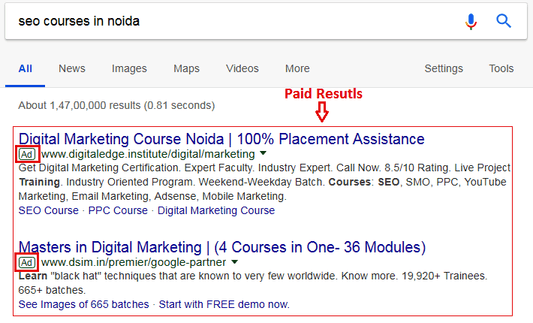Interview :: SEO
Contextual backlinks are the links to external websites that are placed within the content of a web page, i.e., they are part of the content of a page. They are generally built from high authority web pages. These links can be used to build your keyword ranking higher in Search Engines and to increase the domain trust online. See the image:

Crawling refers to an automated process that enables search engines to visit web pages and gather URLs for indexing. When the crawler visits a page, it makes a copy of that page and adds its URL to the index which is called indexing. The search engines have software robots, which are known as web spiders or web crawlers, for crawling.
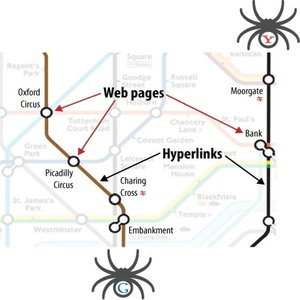
The crawler not only reads the pages but also follows the internal and external links. Thus, they can find out what is published on the World Wide Web. The crawlers also revisit the previous sites to check for the changes or updates in their web pages. If changes are found, it updates the index accordingly.
Indexing starts after crawling. It is a process of building an index by adding URLs of web pages crawled by the crawlers. An index is a place where all the data that has been crawled is stored, i.e., it is like a huge book with a copy of each page that is crawled. Whenever users enter search queries, it is the index that provides the results for search queries within seconds. Without an index, it won't be possible for a search engine to render search results so fast.
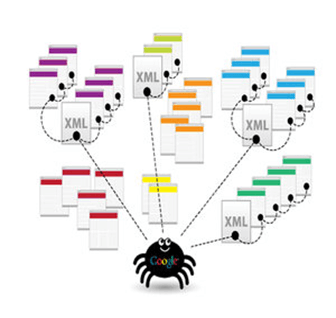
So, the index is made of URLs of different web pages visited by the crawler. The information contained in the web pages is provided by the search engines to users for their queries. If a page is not added to the index, it can't be viewed by the users.
The World Wide Web is a like a huge book whose pages are located on multiple servers present throughout the world. These web pages contain information and are connected by links called "hypertext." In a book, we move from one page to another in a sequence, but in World Wide Web, we have to follow hypertext links to visit the desired page.
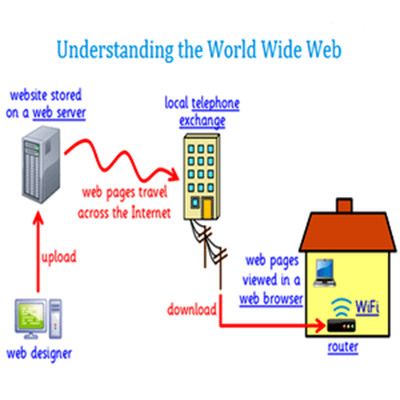
So, it is a network of internet servers containing information in the form of web pages, audios, videos, etc. These web pages are formatted in HTML and accessed via HTTP.
World Wide Web was designed by Tim Berners-Lee in 1991. It is different from the internet which is a network connection used to access the World Wide Web.
A website is a collection of interlinked web pages or formatted documents that share a single domain and can be accessed over the internet. It may contain only one page or tens of thousands of pages and can be created by an individual, group, or an organization, etc. It is identified by a domain name or web address. For example, when you type the web address over the internet, you will arrive at the home page of that website.
A web page is what you see on the screen of a computer or mobile when you type a web address or click on a link or enter a query in a search engine like Google, Bing, etc. A web page typically contains information that may include text, graphics, images, animation, sound, video, etc. See the image given below:
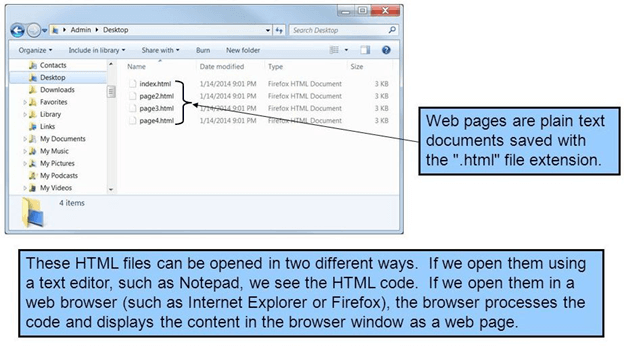
It is a computer program that is designed to serve or deliver the web pages to users in response to their queries or requests made by their computers or HTTP clients. In other words, it hosts websites on the internet. It uses HTTP (Hypertext Transfer Protocol) to serve pages to computers that are connected to it. See the image given below for more clarification!
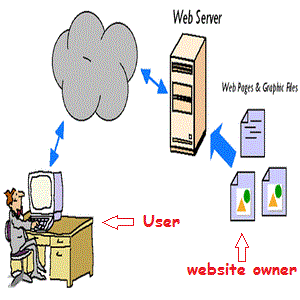
A service that provides space for websites or web pages on special computers called servers. A web hosting enables sites or web pages to be viewed on the internet by the internet users. When users type the website address (domain name) into their browser, their computers connect to the server, and your web pages are delivered to them through a browser.
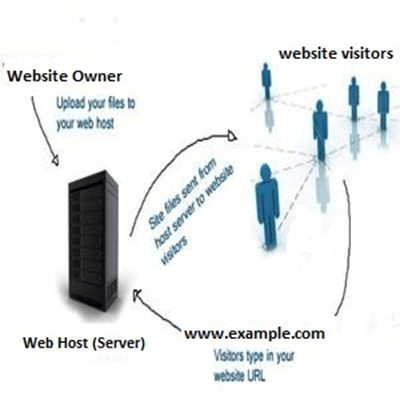
The websites are stored and hosted on special computers called servers. So, if you want users to see your website, you are required to publish it with a web hosting service. It is generally measured in terms of disc space you are allotted on the server and the bandwidth you require for accessing the server. While choosing a web hosting services one should evaluate the reliability and customer service of the service provider.
Organic results refer to the listings of web pages on the SERPs that appear because of organic SEO such as relevance to the search term or keywords and free white hat SEO techniques. They are also known as free or natural results. The search engine marketing (SEM) is not involved in producing organic results. So, organic results are the natural way of getting top ranking in SERP. The main purpose of SEO is to get a higher ranking for a web page in organic results of the search engines.
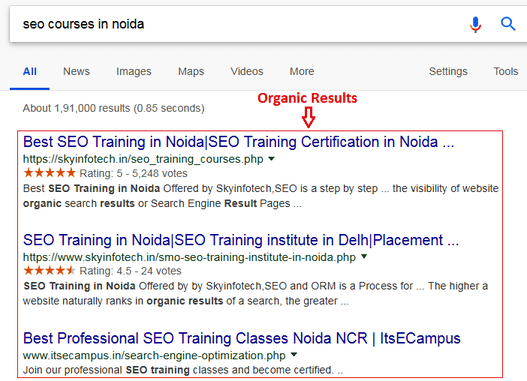
Paid search results are the sponsored ads or links that appear on the SERPs. They are part of Search Engine Marketing in which you have to pay to place your websites or ads on the top of the result pages. The website owners who have a good budget and want results quickly generally pay to Google to display their websites on the top of the result pages for the specific search terms or keywords.
